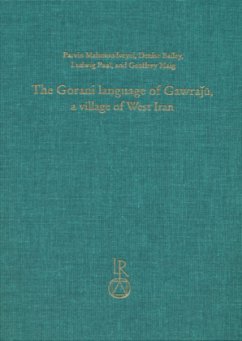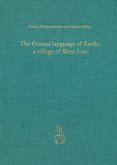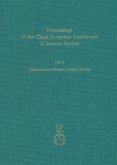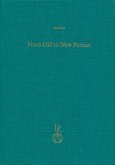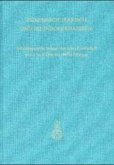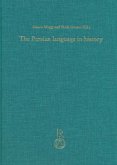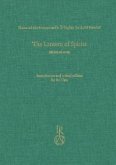Gorani is a West Iranian language spoken in the border region of southwest Iran and Iraqi Kurdistan, of about 200.000-300.000 speakers. On the Iranian side, there is a compact northern group of Gorani dialects, called "Hawrami" and spoken by more than 100.000 Sunni Kurds around the cities of Pawa and Nowsud. Over 50 km south, there are isolated pockets of Gorani spoken in the villages of Gawraju (10 km from the city of Gahvare) and Zarda, of approximately 1.000 speakers each, whose language (especially that of Gawraju) differs substantially from Hawrami. The whole Gorani-speaking area today is a small island in the much larger Kurdish-speaking area. Although Gorani is not a dialect of Kurdish, most speakers of Gorani consider themselves as ethnic Kurds. The inhabitants of the southern regions around Gahvare and Zarda belong to the religious community of the Ahl-e Haqq (or Yaresan), and the scattered pockets of Gorani speakers there are likely to be the remnants of an earlier, much larger Gorani-speaking area.
The two volumes on the Gorani languages of Gawraju and Zarda were prepared in the framework of the DobeS programme ("Dokumentation bedrohter Sprachen") that has been supported by the Volkswagen Stiftung since 1999. The language of the village of Gawraju is particularly endangered, since the main village is being abandoned, and most inhabitants have already left the village in recent years, due to the construction of a dam which will flood the village. Both volumes contain sketch grammars of each dialect (of about 60 pages), sample texts with English translation, and a Gorani-English lexicon of all words that occur in the texts. The texts include fairy tales, traditions of wedding and marriage, accounts of wildlife and women's costumes, and (in the Zarda volume) three eyewitness reports about a chemical bombing of Zarda in July 1988 by Iraqi forces, shortly before the end of the Iran-Iraq war, in which about 150 people were killed. Both volumescontain also compact discs of all the texts.
The volumes provide excellent first-hand linguistic and ethnographic material recorded in situ, with a linguistic analysis that allows both historical (Iranian) and general linguists to make use of the linguistic data.
Hinweis: Dieser Artikel kann nur an eine deutsche Lieferadresse ausgeliefert werden.
The two volumes on the Gorani languages of Gawraju and Zarda were prepared in the framework of the DobeS programme ("Dokumentation bedrohter Sprachen") that has been supported by the Volkswagen Stiftung since 1999. The language of the village of Gawraju is particularly endangered, since the main village is being abandoned, and most inhabitants have already left the village in recent years, due to the construction of a dam which will flood the village. Both volumes contain sketch grammars of each dialect (of about 60 pages), sample texts with English translation, and a Gorani-English lexicon of all words that occur in the texts. The texts include fairy tales, traditions of wedding and marriage, accounts of wildlife and women's costumes, and (in the Zarda volume) three eyewitness reports about a chemical bombing of Zarda in July 1988 by Iraqi forces, shortly before the end of the Iran-Iraq war, in which about 150 people were killed. Both volumescontain also compact discs of all the texts.
The volumes provide excellent first-hand linguistic and ethnographic material recorded in situ, with a linguistic analysis that allows both historical (Iranian) and general linguists to make use of the linguistic data.
Hinweis: Dieser Artikel kann nur an eine deutsche Lieferadresse ausgeliefert werden.

